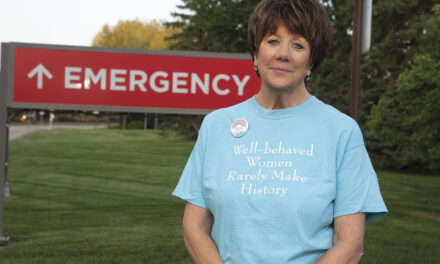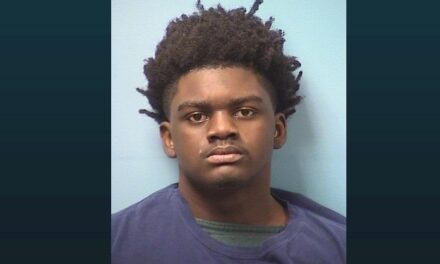
MR. CAPEHART: Good afternoon. I’m Jonathan Capehart, associate editor at The Washington Post. Welcome to Washington Post Live and the debut of our new series, Style Live.
Jada Pinkett Smith sits at the head of the Red Table. She has set it off, taking us into “The Matrix” and on an unforgettable “Girls Trip,” but now in her new memoir entitled “Worthy,” she is bringing us into her life.
Joining me now is actress and author Jada Pinkett Smith. Jada, welcome to Washington Post Live.
MS. PINKETT SMITH: Hi. How are you?
MR. CAPEHART: So I am great, and it is wonderful–it’s wonderful to see you. Let’s start with the title of the book, “Worthy.” It’s a powerful word and can be interpreted in many different ways, depending on where you sit when you see it. What are you telegraphing with the title “Worthy”?
MS. PINKETT SMITH: You know, I think that we–and I won’t say—I think a lot of us are on that journey to self-love, self-acceptance, to get to that place that we feel worthy just being, just simply being who we are instead of looking for validation from outside sources to make us feel that we have worth. I feel like worthy, one feeling worthy is when one has that high level of self-acceptance and self-love.
MR. CAPEHART: So diving into the book–and the title strikes me as a positive tone of defiance, because not only are you snatching back a negative narrative that engulfs–that engulfs your present, you’re also declaring it positively in response to your difficult–your difficult past. Correct me if–I mean, am I getting that right? Because that’s the way it reads to me.
MS. PINKETT SMITH: You are. You are. You hit it on the–you hit it. Yes. [Laughs]
MS. PINKETT SMITH: Great, great. So I can move on to my next question, because you really focus in on worthiness when it comes to being a woman, and you write, “Many of us as women, to one degree or another, don’t recognize the insidious ways we are made to feel unworthy.” Talk more about that.
MS. PINKETT SMITH: Well, I think for a lot of times, our narratives will be connected to other people’s narratives, sometimes, you know, our husbands or our partners, and, you know, it’s to say that our value is based on who we are partnered with, who we are partnered to, and that we should live our lives accordingly to uphold that particular person’s value, how they might be valued. And sometimes that can give the idea that we don’t have the right to have our own story, we don’t have the right to live our lives the way that we choose, or even that if our stories aren’t in alignment with that particular person we are partnered with that it seemingly has more value, then our story is not worthy to be told. And so that’s just one little sliver. [Laughs] I mean, there’s so many different ways, and that’s just one.
MR. CAPEHART: Mm-hmm. You know, it’s interesting when you say your stories aren’t in alignment, and you were talking about in terms in alignment with the other person, the partner. But I was thinking when you’re on this journey and what happens when your stories are not in alignment with either popular culture or, you know, cultural norms and things like that. Is that also part of it?
MS. PINKETT SMITH: Absolutely, because those cultural norms are, you know–those cultural norms are expressed, are supposed to be expressed in your relationship. Or expressed in how you as a woman live your life on a daily basis, right, just as whatever all of those cultural norms are of what a woman should be and what a woman should not be, how a woman should behave based on her placement in life.
MR. CAPEHART: Mm-hmm. We’re going to talk a little bit more about that.
MS. PINKETT SMITH: So whether you’re a mother–
MR. CAPEHART: Yes, go ahead.
MS. PINKETT SMITH: –whether you’re a wife, whether you’re–you know, whether you’re a businesswoman, you know, whatever.
MR. CAPEHART: Right, right. We’re going to get a little bit into that in a little bit later, but your career in Hollywood spans decades. And you’ve been in some of my favorite movies, which was really surprising to see how many movies that I love that you’re in. Your life and your marriage have been the focus of tabloids, especially since the 2022 Oscars. But why was now the time to tell your story?
MS. PINKETT SMITH: Well, I decided to tell my story. It was December 2021, and I had a good friend of mine, Jay Shetty, who kept saying you need to write your story, and I was like “I don’t want to.” And so one day, we kind of butted heads, and I said, you know, Jay is like your little big brother, so just think about this.
And so I did, and it came to me. I was like, wow, my journey from feeling unlovable to lovable is a worthy story to tell.
MR. CAPEHART: So let’s get–let’s get into that journey from unlovable, which started in Baltimore. You were raised in Baltimore. You attended the Baltimore School of the Arts, but you write that you were also earning a degree at what you called, quote, the “University of the Bmore Streets.” How so?
MS. PINKETT SMITH: Yes. You know, my mother was–had substance abuse problems, and I had a very–you know, my life in my home wasn’t really stable. And so I went to the streets to look for stability, look for security, to look for power, and so I started selling drugs, you know. And that didn’t work out too well. [Laughs]
MR. CAPEHART: You even–wait. Jada, you even write about the fact that when you were selling drugs, there were two times there was a gun, not just pointed at you, but put to your head.
MS. PINKETT SMITH: Absolutely. That was the first time. Yeah. And that’s why I said it didn’t go well, right? And so I got into two pretty violent situations that, you know, I could have ended up dead for sure, and thank goodness my mother, being that she’s a young mom, she was aware, that she found out about what happened to me when I got robbed. And she got me out of there. She got me out of Baltimore and got me to North Carolina School for the Arts, where I was able to get focused and get myself together.
MR. CAPEHART: But before you moved to North Carolina, you met Tupac Shakur in Baltimore.
MS. PINKETT SMITH: Yes.
MR. CAPEHART: Do I have the time–the timing right? Right?
MS. PINKETT SMITH: Oh, yes. Pac and I met in high school.
MS. PINKETT SMITH: Right, in high school. And what’s interesting about your relationship, despite all the assumptions people have made over the years, it wasn’t a physical relationship. Yours was a deep, deeply emotional one. What drew you two together?
MS. PINKETT SMITH: You know, when I first met Tupac, he was so dynamic, and I think that we–I mean, we instantly–as soon as we met, we became inseparable. And I think a lot of what drew us together is that our home life was very similar. His mother also had problems with substance abuse, and we really looked to each other to pretty much fulfill the things that we weren’t getting at home. We became each other’s siblings. We became each other’s parents. We became each other’s protectors in different ways. And that really drew us close.
MR. CAPEHART: Mm-hmm. You know, I watched your podcast interview with Cole, Cole Sprouse, the host of “The Diary of a CEO” podcast, and you got really emotional when you were talking about visiting Tupac when he was on Rikers Island, the notorious jail in New York City that folks to this day are trying to close because of the conditions there. What was it about that experience that remains so present for you?
MS. PINKETT SMITH: I just remember, you know, getting on that bus and going over there and just–first of all, he was in really bad shape. He still hadn’t really healed completely from being shot. His alopecia was really–was really extreme. He was very thin. And I just remember that place just being–I just couldn’t believe that I was coming to see him in that condition at this jail and the condition that Rikers was. I mean, it’s just–if–all I can–all that comes up for me is “dungeon” in my mind right now.
MR. CAPEHART: Mm-hmm.
MS. PINKETT SMITH: And I just couldn’t believe that I was actually going to leave him there. I just–I couldn’t fathom that, because I was like he needs to be home, he needs to be taken care of, and I’m going leave him here in this condition in this place with these people. I just–I couldn’t believe. That place in me that always wanted to protect him, always wanted to be there for him, and I was helpless. There was nothing I could do.
MR. CAPEHART: In the last few weeks, there have been charges. A person has been arrested in the murder of Tupac Shakur. I would love to get your reaction to that break in the case.
MS. PINKETT SMITH: Well, this is a person that we always knew was in the car when Pac got shot. We–I mean, he had–he had done an interview or two.
And so I’m glad that an arrest was made, but I still think there are a lot of answers–there’s still a lot of questions that need to be answered.
MR. CAPEHART: Let’s turn to your time in Hollywood. You get to Hollywood, and you were not only told that you had a chip on your shoulder, but they also said you had an edge.
MS. PINKETT SMITH: [Laughs]
MR. CAPEHART: The late director John Singleton even told you to lose your East Coast accent or, quote, “You’ll never make it in this business.” And I love that you can laugh about this now, which you write about later in the book about why it’s important to laugh in the present, because you’ll laugh later. But you write, “Black talent was in vogue. Whereas Blackness off screen was not.”
MS. PINKETT SMITH: Oh, yeah.
MR. CAPEHART: How did you push back against that?
MS. PINKETT SMITH: Yeah. And when I made that statement, I wasn’t talking about Black creatives like a John Singleton, right? John Singleton, that doesn’t apply to John at all. John just had a problem with my accent, because he wanted–
MR. CAPEHART: [Laughs]
MS. PINKETT SMITH: He’s doing West Coast movies. You know what I mean?
MR. CAPEHART: Right.
[Laughter]
MS. PINKETT SMITH: But, yeah, at that particular point of time, you know, one’s Blackness off camera, just it was as if we were all supposed to assimilate into the Hollywood flow and, you know, not–it was almost as if it’s yes, I’m from Baltimore, and I just got here. You know what I mean? [Laughs]
MR. CAPEHART: Mm-hmm.
MS. PINKETT SMITH: Like I need a minute, but it was so aggressive, like you can’t talk like that, you can’t dress like that, you know, no, your hair has to be straight, we don’t want it curly and, you know–and any kind of Afrocentric style. And it was just very interesting how it’s okay to do all of that on camera, but once you got off camera, if you were going on a red carpet, if you were doing interviews, if you were on covers of magazines, none of that was seemingly acceptable.
MR. CAPEHART: You know, you dropped a piece of knowledge during that “Diary of a CEO” podcast that I thought was really interesting. You had a chance conversation with the legendary actor, Warren Beatty, and I took notes on this because you said Warren Beatty was the first person to tell you, you weren’t wrong for being who you are. You said he honored where you sat, encouraged you to show people other aspects of your personality. Why–talk about that and why that ended up being something very–an important encounter in your life.
MS. PINKETT SMITH: Right. I talk about it in my book as well, right? I talk about Warren. It was because I had had so much pushback in regards to anybody else talking to me about anything in regards to me and what I might need to adjust. And I think Warren–you know, this was during the time that I was reading his script, “Bulworth,” and he was very interested in me being in that movie. And, you know, I decided that I didn’t want to participate in the movie, but he took the time to just tell me like, “Listen, you’re very talented, and, you know–but I just want you to know that there’s so much more to you,” you know, because he was–he was basically talking about that chip on my shoulder, like that edge. And he was like, “Listen, this game in Hollywood is a little different. You know, you’re not in Baltimore anymore. You can put–you can lay all that down.” And he was talking to me in a way that was just very–I could still accept myself. He wasn’t saying that I had to change because I was wrong, and he wasn’t saying, “I’m not telling you to not be that. I’m just saying try to use the other tools in your toolbox once in a while because they’re there,” right? And I was like okay, and he was like, “It’s all right. You’re not in Baltimore anymore. This is a different environment.” And so I just had to really learn how to kind of look at the environment and understand that I don’t always have to carry this like “Don’t mess with me. Don’t come over here,” you know, that I could–I could be more open, you know.
[Laughter]
MR. CAPEHART: I know. So, Jada, Debbie Allen–
MS. PINKETT SMITH: Yes.
MR. CAPEHART: –actress, famed choreographer, she’s like all of our favorite auntie, cousin, wherever she falls in the family tree, but who is she to you?
MS. PINKETT SMITH: Oh, man, she’s been my guardian angel, always. Even to this day, she’s always checking on me. She’s just–no matter what, like everything I’ve been through, Debbie is usually the first call. You know, I’m hearing from Debbie first, “What do you need? You know, I’m here to tell you I love you. Don’t worry about anything, you know. No, you come–you come and see me,” you know, because she wanted me–right after the Oscars, that picture that you just showed, she’s like, “I need you to come to this event for DADA,” and I was like, “Debbie, you don’t–like right now it’s so much heat.” She said, “I do–you are my baby. I need you to come. I want you here with me,” and so I was like, “Okay, Debbie. I’ll be there.”
[Laughter]
MR. CAPEHART: So Debbie Allen was a role model for you because she had the multidimensional career. She was doing it all–
MS. PINKETT SMITH: Yes.
MR. CAPEHART: –and not only that she created the role of Lena James on “A Different World” just for you. What did that mean to you?
MS. PINKETT SMITH: Everything. I mean, you can’t imagine. I walked into a room with the woman that I have been–who has been like my mentor from afar, right? And I want it to be Debbie Allen, and I walk into a room, and I auditioned for this guest-starring role of a college student that contracted HIV. And afterwards, she’s like, “Tell me about you. What’s your–where are you from? Who are you?” So I tell her my whole story, and of course, I’m like, “I just love you, and I’m going to be the next Debbie Allen.” And she cracks up, and, you know, we continued to talk, and she’s like, “Listen, I’m not going to give you the guest-starring role, but I’m going to create a series regular, series regular for you to come on this show.” And she created Lena James based on my history in Baltimore.
MR. CAPEHART: Wow.
MS. PINKETT SMITH: Right?
MR. CAPEHART: Wow. I mean–
MS. PINKETT SMITH: Yeah.
MR. CAPEHART: –those are the kind–those are the kinds of encounters that you tell young people about and–
MS. PINKETT SMITH: Yes.
MR. CAPEHART: –you try to tell them, you know, it is possible, but you got to be prepared. And when someone asks you, well, what do you want, or who are you, you better tell them because you never know where it will lead.
MS. PINKETT SMITH: That’s right, and be ready, prepared. And you said it right, like to be prepared. The fact that I had gone to Baltimore School for the Arts for four years–actually like five because I went to a program before that–and then North Carolina for a year, I came to Hollywood prepared. So when doors opened, I was ready. I was ready to just grab the moments.
MR. CAPEHART: And so you get to Hollywood. You’re prepared to grab the moment, and that’s where you meet the Fresh Prince, Will Smith. You auditioned for a guest role on his show, and you actually–I think this was the role where you actually turned him down–you turned him down when he offered you a role, I think, to play–to play his girlfriend on the show. And you told Cole Sprouse that you believe if you had taken that role, you and Will Smith never would have–[laughs]–never would have married.
But–and this gets us to the point of the conversation everybody’s talking about and everybody wants to know. You reveal in the book that you and Will have been separated since 2016. Why did you continue to present as a couple despite living separate lives all those years?
MS. PINKETT SMITH: Yeah. We needed time. I needed time. I really did. I needed time to–first of all, I wanted to wait till Will and I got really solid, and I wanted to make sure–we didn’t know what we were doing. I wanted to separate, I wanted a divorce, and then I didn’t, and then, you know, it was all this back and forth and just really trying to figure it out. I needed time for healing, and we just felt like we were–you know, we were family always, and there’s so much love. And I just needed a minute.
And I’m glad I did because, you know, after the Oscars–it’s so funny how intense situations can bring people closer, and after the Oscars, that’s exactly what happened. And so I would have gone through all of this drama in regards to, you know, getting separated, getting divorced, only to find that we were going to find ourselves coming back closer again.
MR. CAPEHART: And I want to talk about the Oscars in a moment, but can we have a–can we have our own Red Table Talk for a moment?
MS. PINKETT SMITH: Yes.
MR. CAPEHART: Because–because one of the things, when people saw that I was going to be talking to you, I mean, the blowback has been–has been really intense, and a lot of the blowback has been, you know, she had this Red Table Talk, and they’re talking about all this stuff, and yet she never said in any of these conversations that they were separated, that basically–
MS. PINKETT SMITH: That’s not true.
MR. CAPEHART: Oh, go ahead. Go ahead.
MS. PINKETT SMITH: That is not true.
MR. CAPEHART: Correct the record.
MS. PINKETT SMITH: That’s not true. So, see, people weren’t listening. People weren’t listening, and there were a lot of times that I–I never came right out and said it directly. But if you go back and look at some of the Red Table Talks, especially some of the ones that Will and I did together–I think one is called “The Smiths.” It’s Part 1, Part 2. You–there’s definitely breadcrumbs in there, but like I said, right, first of all, we weren’t ready. And so I wasn’t going to come to the Red Table and put something on the table that–to just put it on the table. It was like I didn’t know where we were going to land. I didn’t know what was going on. And so we needed time, and, you know, that–we have permission to take the time that we want, regardless. And so I never ask anybody to come to the Red Table to talk about subjects that they are not ready to talk about. That’s not one of the rules.
MR. CAPEHART: Mm-hmm. And so then–well, so then what do you say to folks who are also like why–and keep in mind, your book doesn’t even come out until tomorrow, October 17th, and people are all up in their feelings about–about the book and about the book tour that you’re on. You have some older Black folks who are like, “Why is she out here telling all their–telling all their business? Why is she”–
MS. PINKETT SMITH: Now, see, here we go again.
MR. CAPEHART: The quote I remember is “disrespecting Will.” I would love for you to talk to those people who are responding to something that they haven’t even read.
MR. CAPEHART: You know, I don’t know if there’s anything to really say, but this goes back to a woman’s narrative having to uphold someone else’s story, right, as if–
MR. CAPEHART: Right.
MS. PINKETT SMITH: You know, and I think that–and I get it, right? And I really do feel like in specifically the African American community–and first of all, let me–let me pause right here, even before I get into that. Will and I are in partnership in regards to this book. Will knows that this is part of my healing journey. Will has been completely supportive of this book, and this has been actually a healing journey for he and I both. And I think that the problem is that people don’t–people are reading headlines and don’t really understand what is happening.
And then also, just the idea–and this is a big problem within the African American community–where
Black women are not allowed to tell their stories when they are connected to Black men, and I understand that we as Black women feel as though we are, you know, the least protected women on the planet. So why, you know, talk about anything that might, you know, disrupt a beautiful, powerful Black man who we need, you know, in our community to hold us down? And that’s not what’s happening here, and people have to understand that that is never my intention.
And Will and I are in partnership. I love Will. I will always ride with Will. He is my–he is my life partner. He is my road dog. I love that man. I am not going to sit up here and, you know–I’m not–this is not a tell-all book. This is my journey, and I have a right to speak on that.
MR. CAPEHART: Absolutely, which is why I pressed you earlier on in the conversation when you made the comment about stories not aligning with other people’s–
MS. PINKETT SMITH: Well, it’s not that–right. And let me just clear that up. When I talk about stories not aligning, meaning that, you know, the idealism. That’s the other thing that’s a challenge in all of this, people wanting people to be perfect, relationships to be perfect. And you know what? There is no such thing as perfection. So in those stories, my story is not in alignment with idealism, you know, and that’s not what Will and I story is. It’s a very real story. It’s a very universal story, like so many marriages that go through ups and downs, and I decided not to talk about our marriage when it was on the downside because–you know what I mean?
[Laughter]
MS. PINKETT SMITH: Because I didn’t feel like anything beautiful and uplifting would come out of that. Now that we’ve come through that and we’re on the other side, I really feel like there’s so much that could be offered as far as how I got through it and how we got through it to get to this other side.
MR. CAPEHART: Right.
MS. PINKETT SMITH: This beautiful other side that we’re on.
MR. CAPEHART: And just to be clear, Will Smith told The New York Times that your memoir, quote, “kind of woke him up,” that you, quote, “had lived a life more on the edge than he’d realized,” that you are, quote, “more resilient, clever, and compassionate than he’d understood it,” so just to, you know, put a button on that point.
MS. PINKETT SMITH: And what else did he say? That’s not–what’s the next line? What’s the next line that he said too?
MR. CAPEHART: Oh, I didn’t write that down. What was the next line, Jada?
[Laughter]
MS. PINKETT SMITH: That was the best part, the next line.
MR. CAPEHART: All right. I’m going to find–I’m going to find the next line while you are answering this next question. Your kids.
MS. PINKETT SMITH: Yeah.
MR. CAPEHART: Have they–did they read the book at any point? Have they read all of it? And what are their reactions to everything that you’ve shared?
MS. PINKETT SMITH: Well, see, you have to remember, my kids have been living this story, so this is nothing new for them. Willow just finished it, and she just loved it. I mean, she was calling me throughout the days just in tears of just around–just–she just thought it was beautifully written. And, you know, Willow’s an author in her own right. Her book comes out in May. She’s a novelist now. We have three authors in the family, but she loved it. And I sat down with Trey and Jaden and told them different parts that were going to be in the book, and Will has been by my side throughout the whole–throughout the whole journey of the book, just in regards to what I was going to talk about, what I was going to share, and all of those things.
MR. CAPEHART: And Will said, “When you’ve been with someone for more than half of your life, a sort of emotional blindness sets in, and you can all too easily lose your sensitivity to their hidden nuances and subtle beauties.”
MS. PINKETT SMITH: There you go.
MR. CAPEHART: That’s what he–that’s what he said.
You know, Jada, can you believe we only have 30 minutes, and we have already hit 30 minutes? We haven’t even talked about–we haven’t even talked about the slap. We haven’t even talked about how you begin this book, which is a whole scene about–that sets up the conversation about mental health, how you were scouting out locations to potentially end your life. We haven’t even talked about what you’ve done that’s completely changed your life in terms of dealing with those thoughts. I wish there was a way for us to get back together so we can have part two of this conversation.
[Laughter]
MS. PINKETT SMITH: Well, I’m going to get my people with your people, and we’ll see if we can hook that up.
MR. CAPEHART: That would be fabulous, and I’m serious.
MS. PINKETT SMITH: Okay.
MR. CAPEHART: I’m going to hold you to it.
MS. PINKETT SMITH: All right, cool.
[Laughter]
MR. CAPEHART: Jada Pinkett Smith, the name of your new book, it’s called “Worthy.” I feel worthy that you have spent time with me and with all of us at Washington Post Live. Thank you so much for coming to Washington Post Live.
MS. PINKETT SMITH: Thank you. Thank you.
MR. CAPEHART: And thank you for joining us. To check out what interviews we have coming up, go to WashigntonPostLive.com. Find out what we’ve got coming and register.
Once again, I’m Jonathan Capehart, associate editor at The Washington Post. Thank you for watching Washington Post Live.
[End recorded session]





